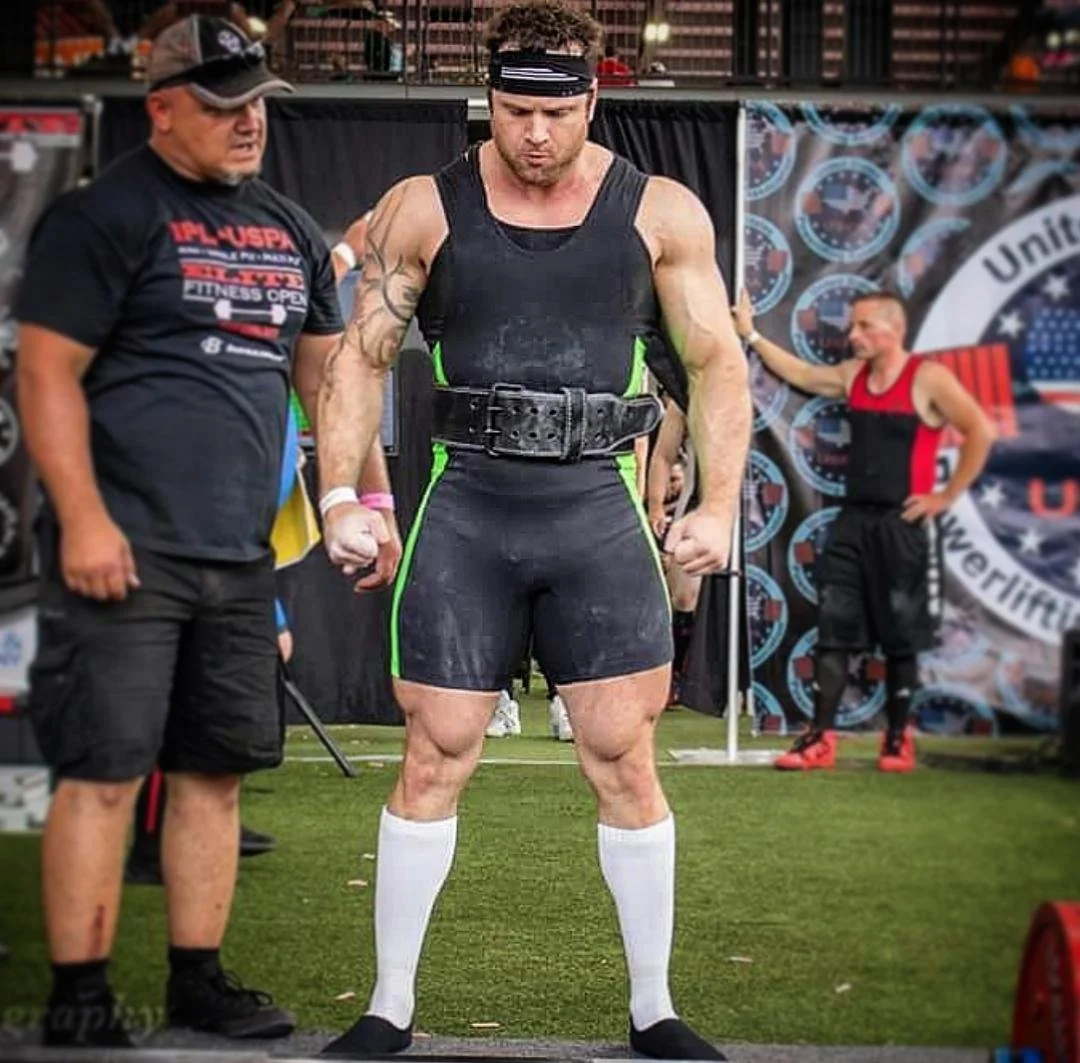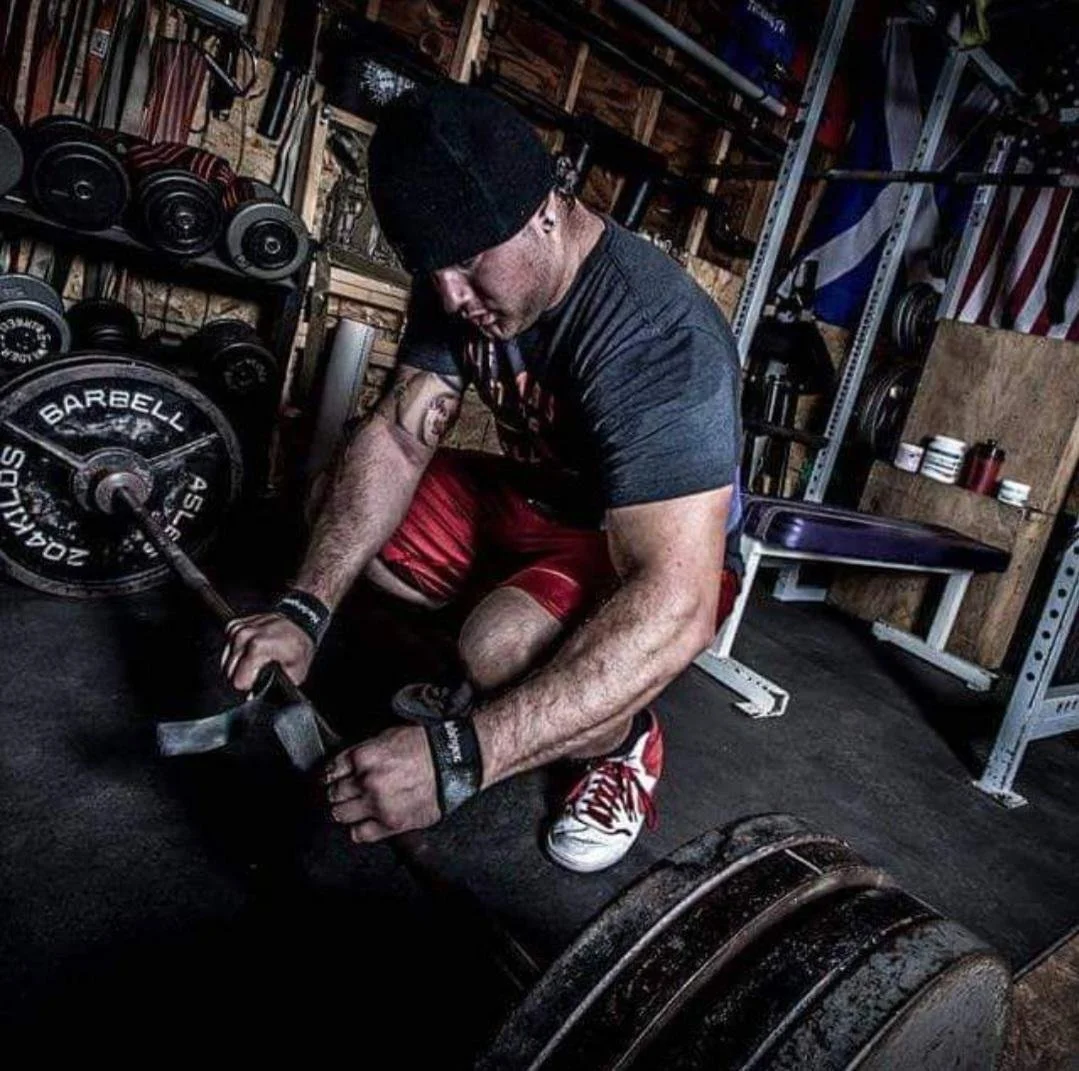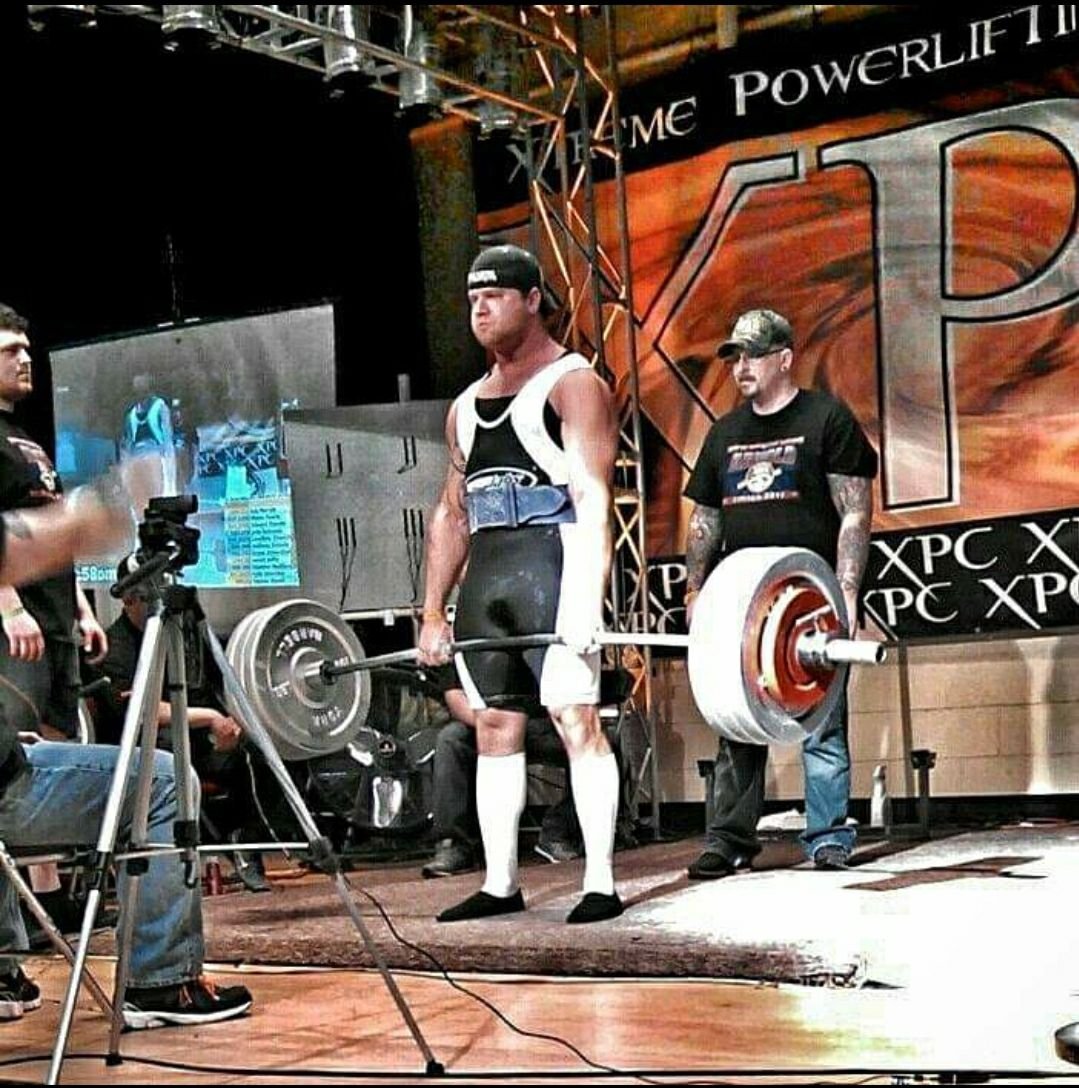
Exciting News! Guest Appearance on Dave Tate’s Table Talk Podcast
I’m honored to announce that I’ll be a guest on Dave Tate’s Table Talk Podcast next Wednesday, March 26th at 10:30 AM, streaming on the EliteFTS YouTube channel.
Dave Tate’s Table Talk is one of the most respected and credible podcasts in strength sports and conditioning, reaching over 500,000 monthly engagements across YouTube, Spotify, and other major platforms. Filmed on-site at the EliteFTS weight room outside of Columbus, OH, the show reflects our shared mission to Live, Learn, and Pass On. With over 26 years of trust and credibility, EliteFTS carefully selects guests whose experiences and insights truly resonate with their audience, and I’m honored to be among them.

How Bodybuilding Made Me A Better Powerlifter and Coach
Competing in two bodybuilding shows before my powerlifting career was one of the most intense yet rewarding experiences of my athletic career as a whole. It tested my discipline, patience, and ability to push through discomfort which led me into powerlifting much more prepared than I would have been had I not had those experiences. But beyond making me a better lifter, it also shaped me into a better coach. The lessons I learned extended far beyond the stage, influencing how I approach my own training and how I guide others in theirs.

3 Acessories to Boost Your Bench Press Strength
A strong bench press isn’t just about pressing heavy weight, it’s about building a well rounded foundation of muscle, technique, and stability. As a coach, I like incorporating specific accessory movements into my programs to help lifters target weak points and develop the necessary strength to push past plateaus. Here are three of my favorite accessories for increasing bench press performance and why they’re so effective.

Advantages of Hook Grip on Deadlift and How to Execute Properly
Grip choice in the deadlift is critical for performance. Being a mixed grip conventional deadlifter throughout my career, I’ve never had any sort of grip issues so I’ve personally never felt the need to switch to hook grip. However, hook grip has become increasingly popular and I’ve coached many athletes to success by utilizing hook grip due to its benefits. Both mixed grip and hook grip come with biomechanical and technical considerations that influence which is better for the individual lifter.

The Downsides of RPE Based Training from a Coaches Perspective and When It Can Be Useful
RPE (Rate of Perceived Exertion) is a valuable tool in strength training, but from a coaching standpoint, it comes with challenges, especially for athletes who struggle with self-regulation or those who thrive on structured progression.

Why Some Muscle Groups Take Longer or Shorter to Recover & How It Affects Programming
Not all muscle groups recover at the same rate after training and understanding this can make a big difference in how you structure your program. Some muscles bounce back quickly, while others need more time before they can be trained effectively again.

Driving Your Knees Out in the Squat: Start From the Ground Up!
Driving your knees out in the squat doesn’t just start with your knees, it begins with your feet. Rooting your feet into the floor and focusing on spreading the floor with your stance naturally helps you engage the right muscles and drive your knees outward. This movement enhances stability, activates the glutes and hip abductors, and creates a solid foundation for a deeper and stronger squat.

Taper and Peak Week Strategies for Competitions
Properly peaking has always been a specialty of mine. A well executed taper and peak week strategy can be the difference between hitting PRs on meet day or falling short. Tapering allows your body to recover from accumulated fatigue while maintaining strength and maximizing performance. However, not all lifters respond the same way, so it’s essential to consider individual factors like size, strength, and training history.

Why Breakfast Matters for Performance in the Gym
Skipping breakfast may seem like a convenient way to save time, but when it comes to crushing your training sessions, that decision could cost you.

Maintaining A Positive Mindset Through Training
In training, as in life, progress is rarely linear. It’s easy to focus on individual workouts, but true growth comes from visualizing the big picture. Each session is just one piece of the puzzle, important, yes, but not the entire story.

Get Stronger While Getting Bigger: Why Mechanical Tension Matters
If you want to get stronger, you need to get bigger. Strength and muscle size go hand in hand because larger muscles have greater potential for force production. But here’s where many coaches and lifters get it wrong, the key driver of muscle hypertrophy isn’t endless volume. It’s mechanical tension.

Why Powerlifters Should Use Straps in Training (Stop Worrying About Grip Strength)
Straps are a valuable tool for us powerlifters and incorporating them into your training is not a sign of weakness, it’s a smart strategy to maximize performance and longevity. Here’s why…

Simple vs. Complex Carbs For Fueling Strength Performance
Carbs are a vital energy source for powerlifters, playing a crucial role in training performance, recovery, and overall energy levels. Anytime I was really strong, I was hammering carbs! However, not all carbs are created equal. Understanding the difference between simple and complex carbs and how to time their intake can significantly enhance your performance.

Building A Strong Back
When it comes to strength training and powerlifting, the emphasis is often placed on the “big three” movements: the squat, bench press, and deadlift. While these lifts are obviously the foundation, one crucial aspect of performance that often goes overlooked is the importance of a strong and well developed back. The back muscles are the cornerstone of strength training, providing stability, power, and control in every lift. As a coach with years of experience, I’ve found that prioritizing back and posterior chain training has been a game changer for my athletes in The Crew, helping them reach new heights in their performance.

Why EVERYONE Should Be Deadlifting
This is a topic I have recently changed my tune on after having a conversation with a seasoned mentor of mine in the sport. I believed if you weren’t competing in powerlifting, that your energy was best spent away from the deadlift platform aside from variations like RDL’s, Stiff Leg Deadlifts etc… This was because the deadlift is such a taxing exercise that it can fatigue you more easily and if your goal isn’t strength then do the pros outweigh the cons? Well, the truth is, most people simply don’t train hard enough to accumulate that much fatigue, not to mention that deadlifting is one of the most functional and beneficial exercises anyone can do, regardless of fitness goals. Here’s why you should make deadlifting a staple in your routine…

Deadlift Frequency: How Often Should You Pull?
Deadlifts are one of the most taxing lifts, so getting the frequency right is crucial for strength gains and long term progress. When programming deadlift frequency, the key factors revolve around recovery, strength goals, and training age. We’ve coached 25 lifters to 600+lb deadlifts, 8 to 700+lb deadlifts, 7 females to 450+lb deadlifts, and 3 to 500+lbs. Here are a few considerations that I like to keep in mind when programming deadlift frequency for my lifters…

Determining a Lifters Sensitivity to Training Variables
Throughout my coaching career, I have always operated under the “every individual is different” approach, just as any coach should in my opinion. Aside from just stating “individualized approaches” for strength athletes, what does that actually entail? A critical factor is to determine a lifter’s sensitivity to volume, frequency, and intensity. Once again, the key is to recognize that every lifter responds differently to these specific variables based on factors like training history, muscular composition, recovery capacity, and even life stressors outside the gym. Here’s a breakdown of what I consider when dialing in these factors for an individual lifter.

7 Reasons Why YOU Should Powerlift
Powerlifting isn’t just about lifting heavy, it’s about discovering a new level of strength, both physically and mentally. You don’t need to be an elite athlete to reap the benefits of the sport that I fell in love with back in 2013. Whether you're looking to get stronger, gain confidence, or just improve your overall health, powerlifting has something for everyone.

5 Reasons Why You Should Be Programmed AMRAPs!
In the world of powerlifting, programming is both an art and a science. Coaches are constantly searching for the best methods to build strength, assess progress, and drive adaptations. One of the most versatile tools that I personally love to incorporate is the AMRAP set. AMRAP is short for “As Many Reps As Possible,” AMRAPs challenge lifters to push themselves to their limits, offering a range of benefits when used strategically.

Why Everyone Should Use The Pendulum Squat
When it comes to building strength, improving your squat, or adding size to your legs, the pendulum squat is a tool that deserves a spot in your training program. While many gyms have the popular basics such as the leg press, or even hack squat, the pendulum squat offers unique benefits that can make a significant difference in your training and Legends 24/7 Gym has it.

